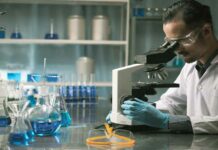The Pistoia Alliance, a global, not-for-profit organisation that works to lower barriers to innovation in life sciences R&D, announced the publication of a new report into the future of the life science and healthcare industries: ‘2030: Life sciences and Health in the Digital Age’. The report, drawing on material generated by 75 industry experts from 65 major organisations, has been written as a retrospective from 2030, looking back on a decade of significant technological, social and political evolution. It predicts new innovations and regulatory reforms that organisations need to be prepared for in the coming decade and examines individual technologies that will impact the sector. The report will help life sciences, biopharma R&D and healthcare organisations identify the trends they will need to respond to and the areas in which collaboration will be crucial.
The technologies covered in the report include:
- AI/ML
- Blockchain
- Cloud Computing
- Quantum computing
- Medical Devices
- Digital – including biomarkers, diagnostics, monitoring and therapeutics
- Internet of Things
- Laboratory Automation
- Tissue and Organ regeneration
- Liquid next generation sequencing
- Therapeutic molecule synthesis
“This report has been created for members and friends of the Pistoia Alliance, as well as others with an interest in what the life science, biopharma R&D and healthcare ecosystem might look like in 2030,” commented Dr Steve Arlington, President of The Pistoia Alliance. “For the past decade, the Alliance has worked with organisations across the industry to improve collaboration and increase innovation, so we are ideally placed to gather expert insight from all angles and look ahead to what the future holds. There is no doubt that the next decade will herald unprecedented change, and our objective is to ensure that the Pistoia Alliance, its members, and the industry as a whole, are prepared and agile enough to respond and thrive.”
Aside from the technological advances forecast, the report also outlines patient-centric innovations likely to occur between now and 2030. These include developments in precision medicine, genomics, stem-cell and gene-based therapies, patient registries, diagnostic pills, and an increased use of Real World Data (RWD). In addition, the authors foresee that breakthroughs resulting from studies of the human microbiome will match, or even surpass, those achieved by genomics in recent decades. However, these healthcare developments come at a cost. Society will need to think of new ways of valuing, calculating and funding the costs of healthcare delivery. The key stakeholders must evolve to become an integrated community which embraces all aspects of healthcare (patients, disease prevention and diagnosis, treatment and monitoring), to collaborate, educate, and inform.
“Our agenda must shift from treatment of disease to prevention and cure, and with that, the reward systems we have to promote these solutions must flex to encompass the new agenda,” said John Wise, report co-author and member of the Pistoia Alliance operations team. “To realise these goals, the industry must embrace the technical and scientific advances we are seeing in the life sciences. The new wave of digital technologies supporting diagnostics, therapeutics and health devices, coupled with the progress of AI and Machine Learning, will deliver exciting progress. Further, the analysis of data generated by this digital revolution will make a profound contribution to the understanding of disease, the delivery of new therapies and the palliation of the human condition.”
The report was written by Dr Steve Arlington and John Wise, following three ‘futurecasting’ workshops held throughout 2019 in San Francisco, Boston and London. 75 delegates attended, and participants included regulators in Europe and US, healthcare professionals, drug discovery experts, technology leaders, and specialist VCs.
About The Pistoia Alliance:
The Pistoia Alliance is a global, not-for-profit members’ organization made up of life science companies, technology and service providers, publishers, and academic groups working to lower barriers to innovation in life science and healthcare R&D. It was conceived in 2007 and incorporated in 2009 by representatives of AstraZeneca, GSK, Novartis and Pfizer who met at a conference in Pistoia, Italy. Its projects transform R&D through pre-competitive collaboration. It overcomes common R&D obstacles by identifying the root causes, developing standards and best practices, sharing pre-competitive data and knowledge, and implementing technology pilots. There are currently over 150 member companies; members collaborate on projects that generate significant value for the worldwide life sciences R&D community, using The Pistoia Alliance’s proven framework for open innovation.




















